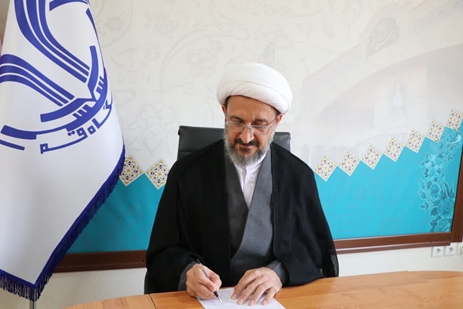Cultural Excellence, Economic Leap, and Public Participation
In his note titled "Cultural Excellence, Economic Leap, and Public Participation," Hojat al-Islam Dr. Ahmad Hossein Sharifi refers to the Message of the 1403, which emphasizes "production leap with public participation."

One of the significant tasks of the prophets and messengers of the Almighty Allah has been the popularization of culture, economy, social engagement, and civilization.
The Holy Quran explicitly states: «We certainly sent Our messengers with clear proofs, and We revealed with them the Scripture and the balance that people may maintain [their affairs] in justice.» (Surah Al-Hadid, ۵۷:۲۵) The purpose of all this was to enable people to reach a level of growth and character where they themselves, willingly and eagerly, would establish justice and fairness.
Economic justice, social justice, cultural justice, educational justice, and political justice cannot be achieved without the participation of the people and without their continuous, free, and voluntary involvement. For this reason, as the wise Supreme Leader states: «The future State of Imam Mahdi is a truly people-oriented governance system… It relies on the beliefs, wills, and strengths of the people. Imam Mahdi does not simply fill the world with justice and equity; rather, Imam Mahdi establishes the divine justice throughout the world by relying on the masses of believers and forming a completely people-oriented governance.» (October ۲۲.2002)
However, without the people and without their participation and presence, not only do we lack the possibility of «institutionalizing Iranian Islamic culture,» but we also lack the ability to defend our cultural and national religious values. Furthermore, in the face of cultural warfare, we will undoubtedly be defeated. We must mobilize the people. We must entrust the affairs to the people. The primary role of the government should be facilitation, creating an enabling environment, and removing barriers to the participation of the people. Even in performing this duty, the government must utilize the participation of the people and the elite, and obtain its facilitation, barrier removal, and monitoring methods through the collaboration of the elite and the general public.
Experience has shown that in any area where the course of affairs have been entrusted to the people, and the government has only played a facilitating and supervisory role, we have witnessed remarkable success. People's participation in production, popularization of the economy and culture, and even politics are among the demands emphasized by the Supreme Leader of the Islamic Revolution, the Deputy of Imam Mahdi. We must all strive to fulfill this demand.
On August ۳۰.۲۰۲۲، the Supreme Leader of the Islamic Revolution, in a meeting with the President and members of the Cabinet, stated: «Determine how people's participation can be attracted, both in financial and economic sectors and in political areas, and how to utilize the public thoughts and opinions.» On January ۱۶.۲۰۲۴، in a summit with Friday Congregational Prayer leaders across the country (A’ eme Jom’ e) regarding the position and role of the people in the Islamic system, He stated: «It is clear that achieving Islamic goals, now called the 'Islamic system, ' and ultimately the 'Islamic civilization, ' is only possible with the presence of the people, their attention, and their initiatives. People must desire, people must come forward, people must take action. This has become a principle for us. Now, an accountable public official must act in a certain way to attract and involve the public, bring them to the scene. At the same time, an active individual on the Friday Prayer pulpit is another example; it means we should be mindful that the issue of 'people' is an Islamic principle. Without it, affairs cannot be accomplished, goals cannot be achieved, and life cannot be attained.»
Universities, in addition to directing a significant portion of their education, research, and technology towards the needs of the people, as is being appropriately done in the thirteenth government, should involve the people, civil institutions, political organizations, scientific associations, cultural centers, the main body of students, esteemed faculty members, and scientific supporters in various decision-making, implementation, and monitoring processes. Only then will we witness a great leap in research, technology, and scientific production
